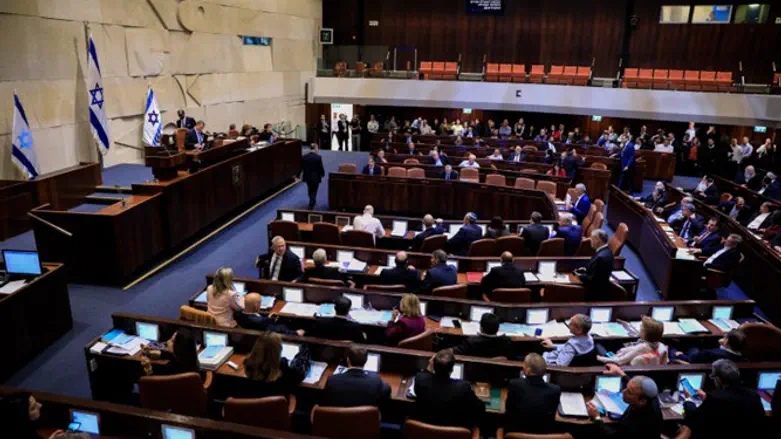
The Knesset began voting Wednesday on laws to approve the coalition deal between Prime Minister Binyamin Netanyahu and Benny Gantz, ahead of a deadline to avoid yet another election.
The alliance formed last month between the incumbent and his challenger followed three inconclusive elections in less than a year.
Under the three-year deal, Netanyahu will serve as prime minister for 18 months, with Gantz as his alternate, a new position in Israeli governance.
They will swap roles midway through the deal, with cabinet positions split between Netanyahu's Likud party and Gantz's Blue and White alliance, as well as their respective allies.
The deal could offer Israel rare political stability as it seeks to repair the economic damage wrought by coronavirus restrictions.
But the pact's opponents have sought to torpedo it in the Supreme Court and in parliament.
Lawmakers have begun voting on various bills to enact the coalition deal. With individual votes scheduled on each of the roughly 1,000 amendments proposed by the deal's opponents, a definitive outcome is not expected until Thursday.
If the deal passes, parliament would then ask President Reuvin Rivlin to provide Netanyahu a mandate to form a government.
With a presidential mandate, Netanyahu would have two weeks to finalize his coalition, including ongoing negotiations over cabinet positions.
Former Gantz ally Yair Lapid, poised to become parliament's opposition leader, blasted what he termed an excessive focus on ministerial positions.
"A single mother with two children who lives in a rented apartment and lost her job will be on the street next month," because of the pandemic, Lapid said.
"That's what we should be dealing with, not which politician gets which job."
If 61 MKs do not endorse Netanyahu for prime minister by midnight Thursday, Israel could be forced to hold its fourth election in less than two years.